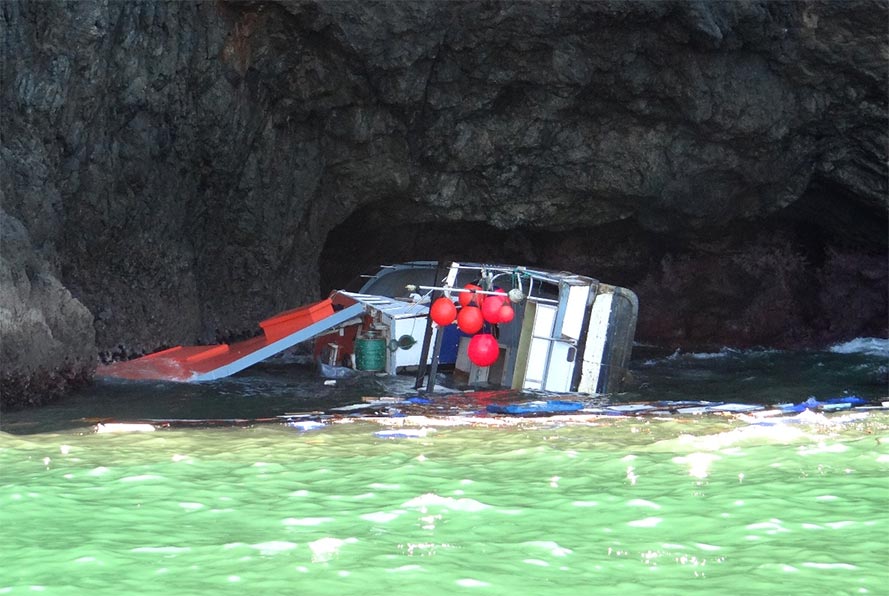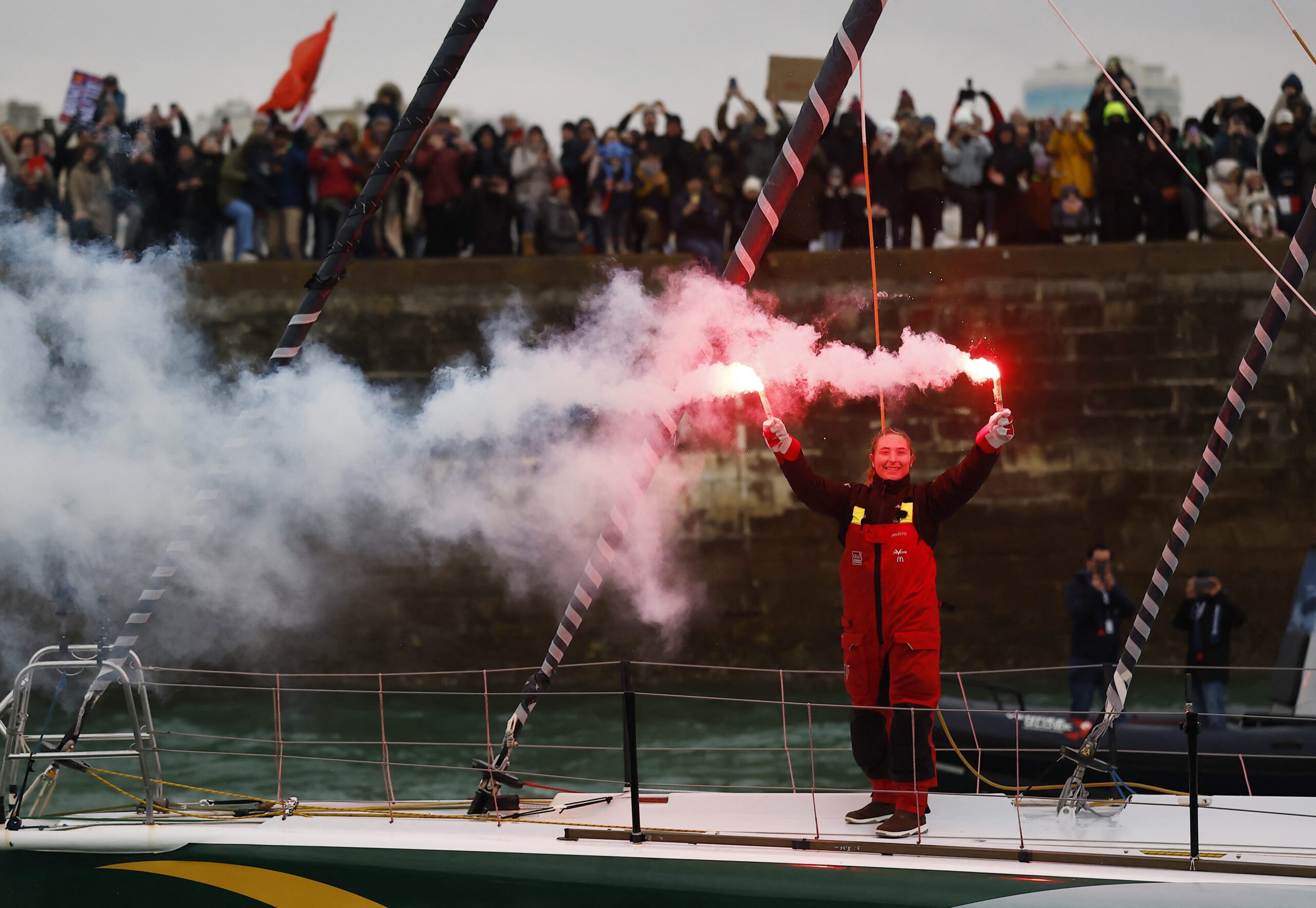Photo: Maritime New Zealand
The vessel ran aground January 11, 2018 after the 17-year-old helmsman fell asleep at the wheel.
Crew fatigue led to the grounding and loss of commercial fishing vessel Jan and its owner, Wild Fish (NZ) Limited, being fined $27,200 following prosecution by Maritime NZ.
Maritime NZ Northern Regional Manager, Neil Rowarth, said the sole helmsman at the time of the grounding, a 17-year-old deckhand, fell asleep soon after going on watch in the early hours of 11 January 2016.
The helmsman had worked a full day, slept for between only one hour and three-and-a-quarter hours, and was then woken to take his turn on watch. He had never before been on watch by himself at night.
After the helmsman fell asleep, Jan ran on autopilot and grounded on rocks near Howe Point in the Bay of Islands. The grounding woke the skipper and the other crew. The skipper ordered the crew to abandon ship due to the hull being breached and water ingress. Jan then capsized and was a total loss.
Mr Rowarth, says the prosecution sends a strong message to all maritime operators that they must have an effective system for managing crew fatigue.
“Crew fatigue is real and potentially disastrous for ships and their crew.
“With all three of Jan’s crew, including the helmsman, asleep it was a matter of luck that this was not a fatal accident.
“Companies and ship’s masters are responsible for effectively managing their crew’s work time and fatigue. If they do not, the results can be tragic. “Maritime NZ will take enforcement action when warranted but no court penalty could ever match the tragedy of a lost ship and the death of crew.”
In 2011, following the grounding of another of its vessels, Den Bearg, Wild Fish Limited had installed watch alarms on its fleet. Watch alarms sound periodically to prevent a crew member on watch from falling asleep. However, Wild Fish Limited did not inform the crew of Jan that a watch alarm had been installed on the vessel and did not train the skipper or crew to use it.
Maritime NZ told the Court Wild Fish Limited had acted recklessly.
There was no effective system for monitoring the sleep of crew members to ensure that overly fatigued crew did not go on watch. Exacerbating the situation, a crew member with limited watch-keeping experience was permitted to go on watch alone. His fatigue level heightened the risk of him falling asleep on watch, and there was no mechanism or work procedure to wake him if he did.
Mr Rowarth says operators of vessels should consider installing watch alarms where appropriate and training crew on their use.
“Watch alarms help keep the watch-keeper awake or wake you up if you have fallen asleep,” he said.
Maritime NZ prosecuted Wild Fish Limited under the Maritime Transport Act, which prohibits “dangerous activity involving ships or maritime products” (section 65). The company pleaded guilty and was yesterday afternoon.

 Join The Club
Join The Club











